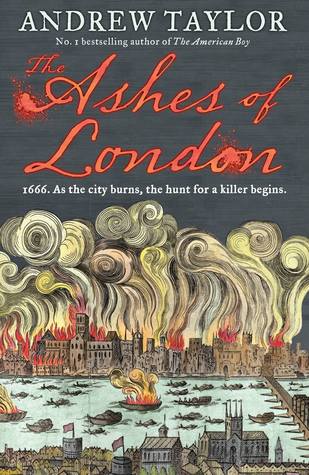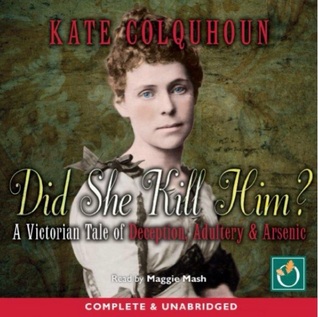
When I picked up Sebastian Barry's 'Days Without End', which has since gone on to be the overall winner of the Costa Book of the Year 2017, I wasn't sure what I would be getting. Praised as a historical novel, the book had also received a lot of press for its portrayal of a gay relationship and Barry is an author know for his lyrical prose style. Having never read Barry before, I didn't know his writing - overly lyrical 'literary' titles sometimes fail to make my wheelhouse - but I've always found books set in the early days of the American West fascinating and I was interested to see how the author would introduce a realistic LGBT element within this setting.
I have to say that, having now finished the book, I was completely blown away by it. The novel is extremely well-written with lush prose, fully-realised characters, a real sense of time and place and - to top it all off - a gentle, tender portrayal of love and family amidst the tumultuous Civil War period.
The novel introduces us to Thomas McNulty, an Irish emigrant orphaned young who has travelled to America for a fresh start. Here he meets John Cole, another young drifter, and they begin a short-lived career as 'young ladies', dressing up in a saloon so that miners may dance with them and forget their lonely lives. As they enter adulthood and their true gender becomes more evident, the two sign up for the US Army and, aged barely seventeen are thrust into first the Indian Wars and, eventually, the blood and fire of the American Civil War. When Winona, a young Indian girl, crosses their path, Thomas and John find their lives both enriched and imperilled.
The novel is more bloody and yet more beautiful than I was anticipating. Barry does not shy away from the realities of war and our 'heroes' take part in more than their fair share of killing. More than one outright massacre of Native American villagers takes place during the course of the book and it does not make for easy reading. What holds the book together in these sections is the power and integrity of Barry's voice - or rather the clear-headed, surprisingly perceptive narrative of the uneducated Thomas:
"Indians look very puzzled, surprised and offended to be shot but they go to the wall with noble mien I must allow. You can’t have nothing good in war without you punishing the guilty, the sergeant says with a savage air and no one says nothing against that. John Cole whispers to me that most times that sergeant he just wrong but just now and then he’s right and he’s right this time.
I guess I’m thinking this is true."
Thomas' voice, which has a unique blend of naivete and wisdom, was the key to this novel for me. If it hadn't been for the sheer power of the voice - the sense of reading someone's memoirs as opposed to reading a narrative - then I think I might have found the violence too bloody, too senseless and without any sense of redemption. And yes, I know that war is bloody, senseless and often without redemption in actuality but I don't necessarily want to read that in my downtime. So the fact that Barry uses the voice to confront the savage nature of war without losing the book to brutality was, for me, on of the strongest points of the novel.
Thomas' voice also kept me going when the plot veered towards the implausible, namely the numerous interludes when Thomas and John resume their entertainment career, with Thomas acting the lady to John's 'beau'. I may be wrong but I can't quite believe that mid-Western society was quite as au fait with the bending of gender norms as this novel at times makes out. And I fail to believe that even the most short-sighted of priests wouldn't spot a thirty-year old man in a wedding dress, however effeminate his facial features and clean-shaven he happened to be.
That said, I thought the love story very well handled. Thomas and John have a gentle, understated love for each other that just is. It was so refreshing to read a novel that doesn't make a big deal of a same-sex romance - there's no dramatic moment when the two realise they're in love, no staggering guilt about what happens. They are friends, then they are comrades, then they are lovers, then they are family. Just like that. It was beautifully done and the sense of family and unity that Barry creates between Thomas, John, Winona and their friends stays on just the right side of sweet without veering into saccharine.
Overall, I loved this book. The plot is a little loose and meandering at times and it does have one or two implausible moments, but that failed to break the spell when I was reading it and I remained drawn in by the power of the voice and the sense of place and time that Barry has crafted. Some may argue that Thomas' voice itself if implausible - would an uneducated Irish orphan be capable of such poetry? I guess that one has to assume that education has nothing to do with the soul and, if nothing else, you get a real sense that this narrative comes from the soul's very depths.
"Things go on. A lot of life is like that. I look back over 50 years of life and I wonder where the years went. A man’s memory might have only a hundred clear days in it and he has lived thousands.Can’t do much about that.
We have our store of days and we spend them like forgetful drunkards.
I ain't got no argument with it, just saying it is so."
'Days Without End' by Sebastian Barry is published by Faber & Faber and is now available in paperback, ebook and audiobook from all good retailers.



